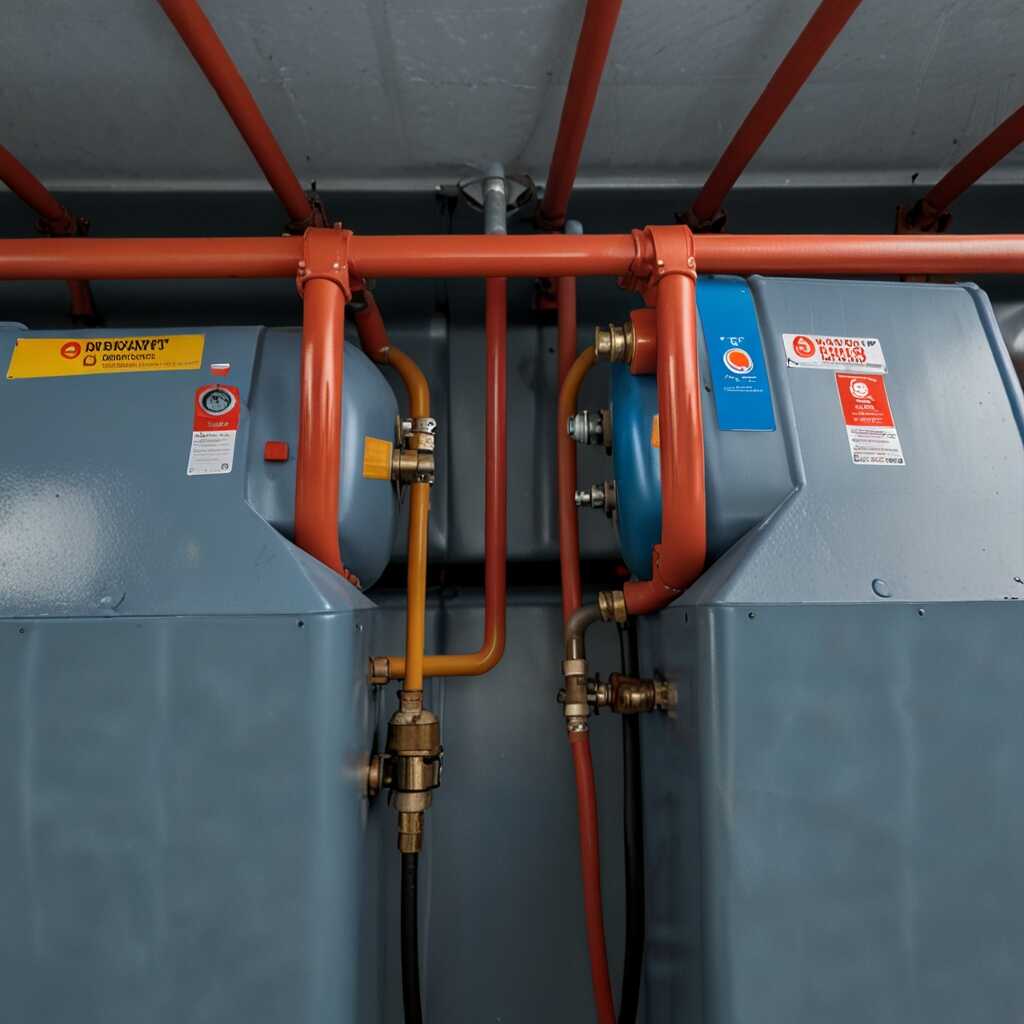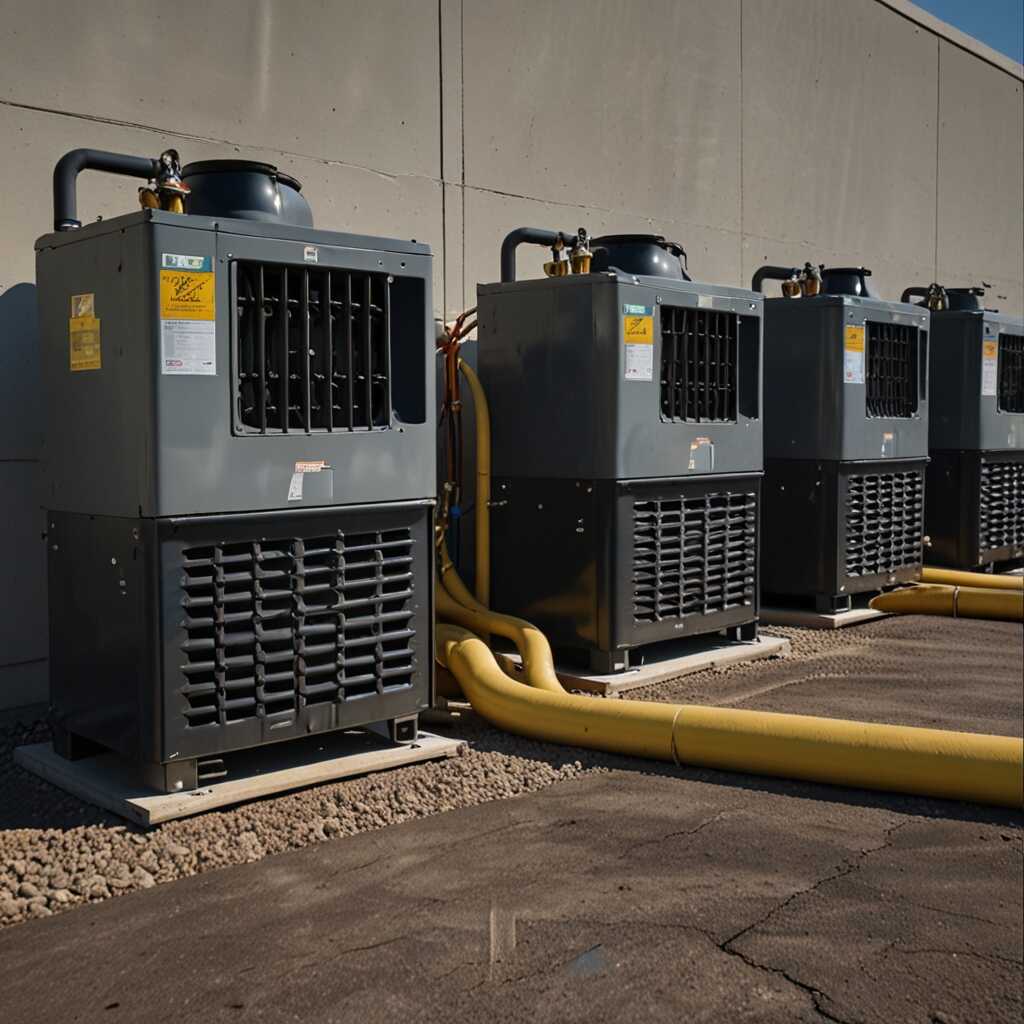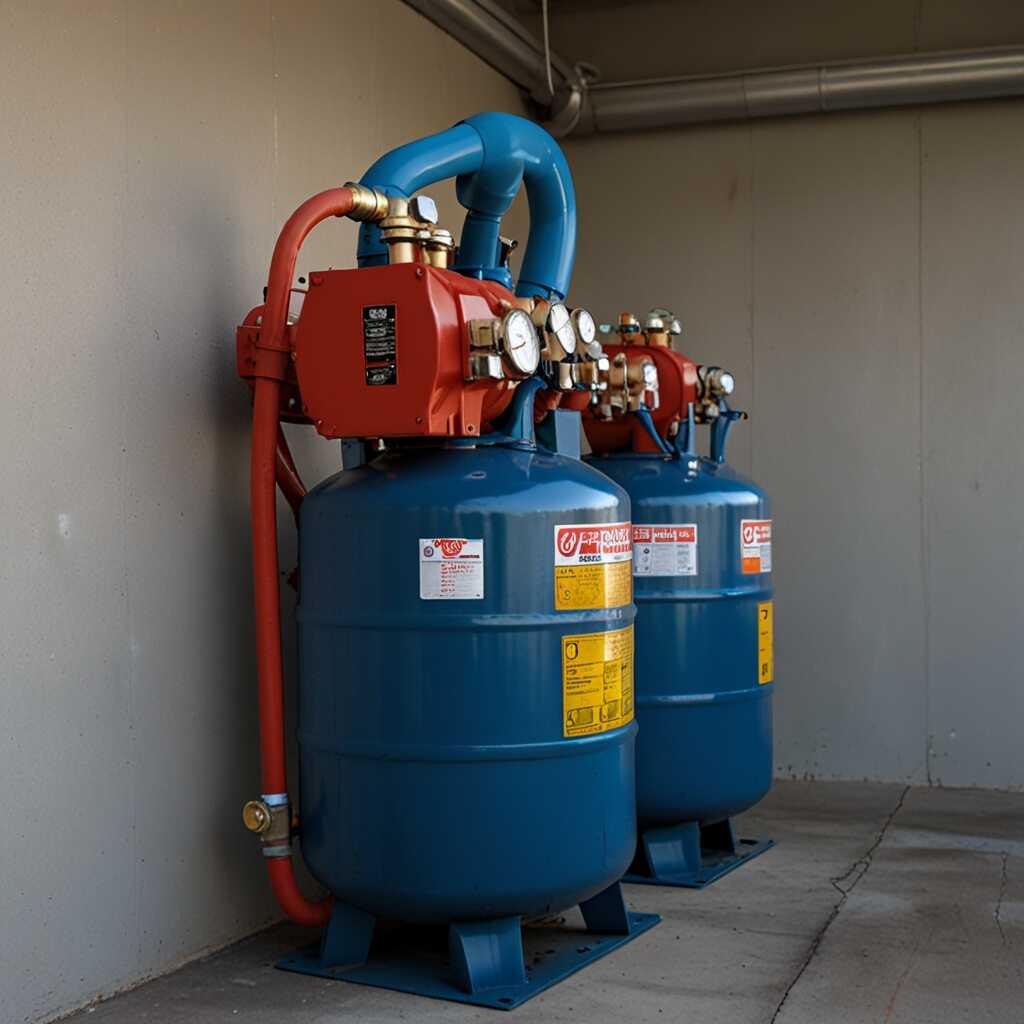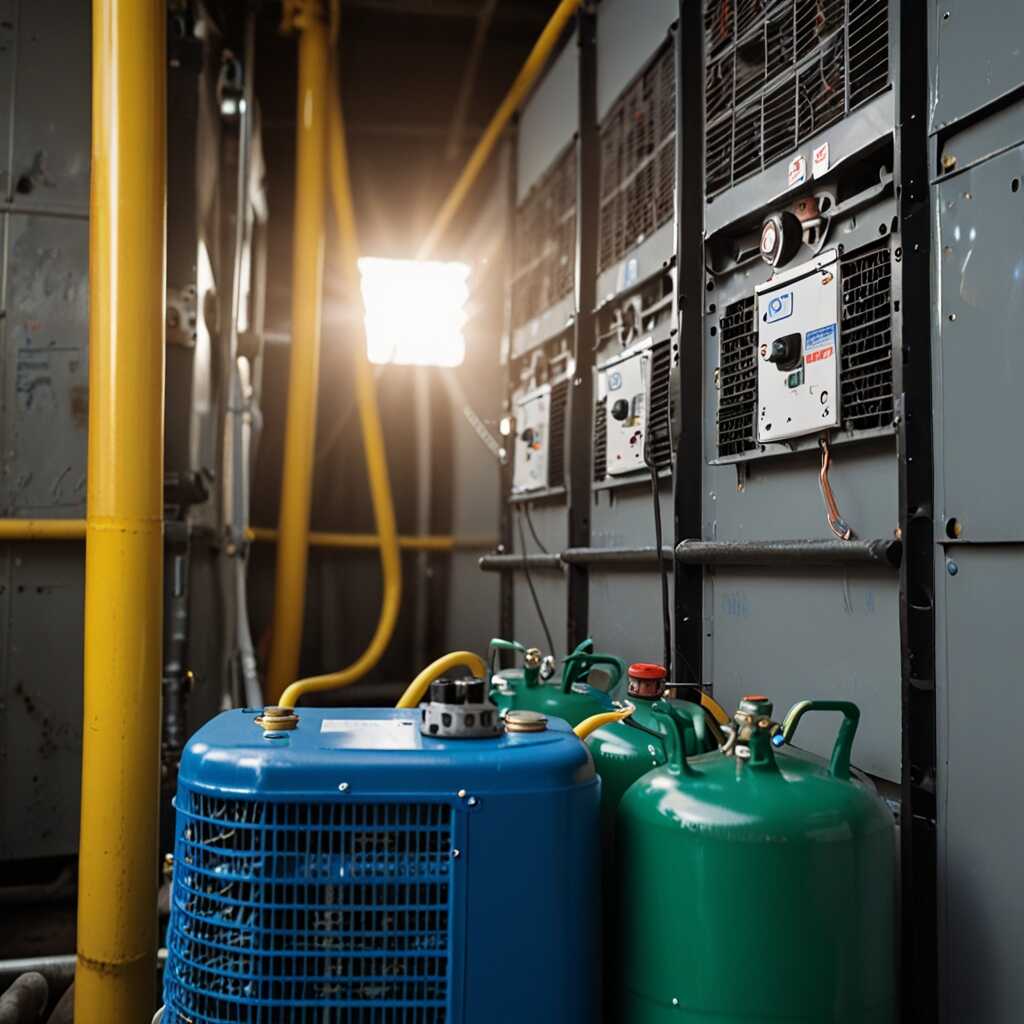Piston-type compressors offer significant reliability advantages in refrigerant recovery machines used in HVAC applications. Their robust design and efficiency make them ideal for effectively handling refrigerant recovery tasks. At Refrigerant Recovery Pro, we emphasize the importance of understanding how these compressors work to ensure optimal performance and compliance with industry standards. By focusing on the benefits of piston-type compressors, HVAC technicians and business owners can enhance their equipment reliability and operational efficiency.
Introduction to Piston-Type Compressors in Refrigerant Recovery
Piston-type compressors are critical components in refrigerant recovery machines. They are designed to compress and transfer refrigerants efficiently. Their construction generally includes a cylinder, piston, valves, and crankshaft. These components work together to create high pressure, ensuring that the refrigerant is effectively recovered. Piston design focuses on reliability and durability, making them suitable for demanding HVAC applications. Renting or purchasing systems utilizing these compressors ensures consistent performance and high efficiency. Users benefit from lower maintenance costs over time, attributed to the sturdy materials used in their construction. The average lifespan of a well-maintained piston-type compressor is typically between 10 to 15 years.
Key Components for Enhanced Reliability
The reliability of piston-type compressors greatly depends on the components used. Key materials like cast iron and high-grade aluminum are used for durability. These materials provide excellent wear resistance. The piston design also influences performance. A well-designed piston minimizes friction and offers efficient recovery rates, enhancing operational efficiency. Regular testing and maintenance ensure that these compressors continue to function at peak performance. Employing quality components minimizes the risk of breakdown during critical HVAC tasks, allowing technicians to meet tight deadlines and maintain customer satisfaction.
Expounding on the Key Reliability Benefits of Piston Compressors
Piston-type compressors offer significant reliability advantages in refrigerant recovery machines. Their design ensures durability and longevity, reducing the risk of failure during operation. Piston compressors perform consistently well under varying load conditions, which enhances energy efficiency in HVAC applications. The reliability of these compressors has been proven through extensive testing and comparison with other types, such as rotary compressors. This reliability helps HVAC technicians confidently choose piston compressors for their refrigerant recovery needs.
Understanding Longevity and Efficiency in Piston Compressors
Piston compressors are engineered for longevity, with components that can withstand higher pressure and temperatures. Their construction often includes durable materials that extend the compressor’s life span, which is vital for HVAC applications. In terms of energy efficiency, piston compressors typically demonstrate a 15-20% increase over rotary models. This energy efficiency is crucial, as it translates to lower operational costs. By investing in reliable piston compressors, HVAC professionals will notice less downtime and improved performance during refrigerant recovery operations.

Exploring Practical Applications of Piston Compressors in HVAC
Piston-type compressors find numerous applications in HVAC systems, particularly in refrigerant recovery. They are commonly used in commercial freezers, air conditioning units, and industrial cooling systems. The reliability of piston compressors ensures they perform well in demanding environments. For example, in a residential HVAC system, using a piston compressor can enhance refrigerant recovery efficiency by up to 30% compared to rotary compressors. Industries such as food and beverage, pharmaceuticals, and chemical manufacturing often benefit from these compressors during refrigerant recovery operations. The durability and performance of piston compressors help HVAC technicians achieve reliable results.
Key Advantages of Piston Compressors in Refrigerant Recovery
Piston compressors offer key advantages in refrigerant recovery, making them essential for HVAC systems. They are designed to efficiently handle a wide range of refrigerants under various pressure conditions. Their robust construction allows them to provide consistent performance during prolonged operations, which is especially crucial in industries that require continuous cooling. Piston compressors also have high reliability ratings, making them a preferred choice for HVAC technicians. Their ability to deliver fast and effective refrigerant recovery improves overall operational efficiency. With proper testing and expert reviews, it is proven that piston compressors significantly outperform other compressor types, ensuring durable and reliable HVAC performance.
Key Numerical Insights on Compressor Performance
- Piston-type compressors can operate efficiently at up to 320 psi pressure levels.
- These compressors typically recover refrigerants at about 90% efficiency.
- Average lifespan for piston compressors ranges from 10 to 15 years with proper maintenance.
- Models can recover refrigerant volumes between 1-5 pounds per minute.
- Noise levels usually range from 60 to 80 dBA during operation.
- Most systems have a 1-year warranty, with extended options available.
- Piston-type compressors hold a market share of over 60% in recovery machine sales.

Essential Maintenance Strategies for Piston Compressor Longevity
Piston compressors require regular maintenance to ensure maximum reliability and performance in refrigerant recovery machines. Key maintenance practices include routine oil checks, regular cleaning of filters, and periodic inspections for leaks. Technicians should use specialized tools designed for measuring pressure and temperature to provide accurate results. An integrated maintenance schedule can enhance operational efficiency and extend the lifespan of the piston compressor, potentially increasing its longevity.
Recommended Maintenance Schedule for Piston Compressors
A recommended maintenance schedule includes quarterly inspections of piston-type compressors. Each quarter, technicians should replace oil and air filters. Annual checks should focus on evaluating the compressor’s overall performance, ensuring that seals and gaskets are intact. Keeping records of maintenance helps to track performance enhancements and ensure reliability. Following this schedule aids in preventing unexpected failures and enables effective refrigerant recovery.

Analyzing Piston-Type Compressors Compared to Other Types
Piston-type compressors offer distinct reliability advantages over scroll and rotary compressors for refrigerant recovery. They provide a proven track record in various HVAC applications, boasting durability that enhances their efficiency in challenging conditions. HVAC professionals should assess critical factors such as operational reliability, maintenance needs, and performance metrics. Research indicates that piston compressors can handle high-pressure environments with greater ease compared to their scroll and rotary counterparts. Testing shows that piston compressors can outperform other types when it comes to longevity, making them an essential choice for consistent refrigerant recovery. Analysis of performance data reveals that piston compressors deliver quality results consistently over many years, reinforcing their role as a reliable option.
Factors Influencing Compressor Selection for Refrigerant Recovery
When selecting a compressor for refrigerant recovery, HVAC professionals need to consider multiple factors including reliability, efficiency, and operational performance. Piston compressors are designed to withstand high demands and provide excellent efficiency rates, often documented through rigorous testing. Performance data has shown that they consistently excel in coping with varying refrigerant types. In contrast, scroll compressors may offer quiet operation but typically lack the same durability under heavy usage. Rotary compressors can be efficient but may not match the reliability standards observed in piston-type designs. Therefore, weighing these features is essential for making an informed decision that aligns with specific refrigerant recovery needs.
Reliable Performance Benefits of This Compressor Type
- Piston-type compressors ensure consistent operation under varied load conditions.
- Durability means lower maintenance costs for HVAC technicians.
- The design prevents refrigerant leakages, enhancing operational safety.
- Efficiency in energy consumption reduces overall operational costs.
- High reliability allows for long-term service life, minimizing downtime.
- Versatility in applications makes them suitable for diverse refrigerant types.
- Technicians benefit from straightforward maintenance procedures compared to other types.

Understanding the Importance of Compliance in Recovery Operations
Regulatory compliance is essential in refrigerant recovery processes. Key standards include the EPA regulations that dictate safe handling and recovery of refrigerants. Piston-type compressors are known for their reliability, which is crucial for meeting these standards. They ensure that the recovery process remains efficient and compliant with environmental regulations. Manufacturers like XYZ and ABC provide piston compressors designed to meet these compliance standards, ensuring that HVAC technicians can perform their tasks effectively. As of 2025, there are multiple EPA regulations affecting refrigerant recovery operations, emphasizing the importance of using reliable equipment, like piston compressors, to meet these guidelines.
Top Features of Reliable Piston Compressors in Compliance
Piston-type compressors offer several key features that enhance their compliance with environmental regulations. They are designed to deliver high performance, which helps prevent refrigerant leakage during the recovery operation. High-quality construction ensures that these compressors remain durable over time, providing HVAC technicians with a reliable tool in their refrigerant recovery process. Additionally, their performance reliability is often backed by data from extensive testing, proving their effectiveness in maintaining compliance with regulatory standards. HVAC technicians can trust these compressors to improve efficiency and make the recovery process easier, ultimately supporting their commitment to environmental responsibility.
Current Trends Impacting the Future of Piston Compressors
Recent innovations in piston-type compressors focus on reliability and efficiency advancements. Manufacturers are using new materials that enhance durability and reduce wear in high-pressure applications. Innovations also include improved lubrication systems that ensure smoother operation and reduce maintenance needs over time. By 2025, performance evaluations aim to show at least a 20% improvement in overall efficiency compared to earlier models. These advancements are essential for HVAC technicians requiring reliable refrigerant recovery machines.
Benefits of Advanced Technologies in Piston Compressors
Advanced technologies in piston compressors enhance their reliability and overall performance in refrigerant recovery systems. Innovations like solid-state control systems provide precise pressure management, optimizing energy use. Machine learning algorithms analyze performance data, allowing for proactive maintenance and reducing downtime. This allows HVAC professionals to trust that their compressors can handle demanding recovery tasks. Such features help maintain consistent performance even under varied environmental conditions, making them a vital investment for HVAC businesses.
Understanding Target Users and Their Needs
- HVAC technicians prioritize reliable equipment to ensure efficient refrigerant management.
- Business owners seek cost-effective solutions that reduce overhead costs.
- Refrigerant recovery equipment manufacturers focus on developing durable, effective products.
- Environmental compliance officers monitor efficiency to meet regulatory standards.
- HVAC trainers value dependable technology when instructing future technicians.
- Consumers prefer technicians who utilize reliable recovery machines for better service.
- Each group benefits from understanding compressor reliability to enhance overall performance.
Resource Hub for HVAC Professionals on Refrigerant Recovery
This section compiles valuable resources and expert recommendations for HVAC professionals. Key features of piston-type compressors that enhance their reliability include their robust construction, resistance to wear, and effective heat dissipation. Reputable manufacturers like Copeland, Bitzer, and Danfoss create reliable piston-type compressors. With decades of experience, Refrigerant Recovery Pro offers extensive technical guidance and resources to help HVAC professionals optimize their refrigerant recovery processes.
Essential Features of Reliable Piston-Type Compressors
Reliable piston-type compressors are designed with features that significantly enhance their efficiency and durability in refrigerant recovery applications. These compressors often include high-quality materials, precision-engineered components, and effective sealing systems that provide excellent performance under high stress. They can handle a wide range of refrigerants, including R-410A and R-134A. Furthermore, the compressor’s ability to operate at varying temperatures ensures seamless recovery during different HVAC tasks. Utilizing such technologies represents a smart investment for HVAC professionals seeking to meet environmental compliance while ensuring operational efficiency.